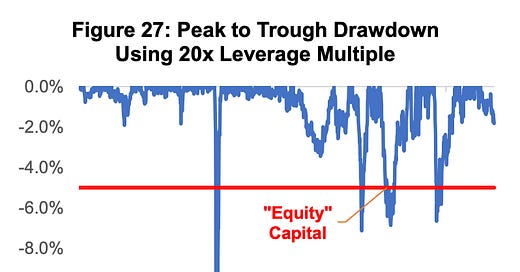Economics: The remarkable continued profitability of the Treasury Basis Trade tells us that the U.S. Treasury has profoundly misjudged what kinds of Treasury securities that market really wants to hold. Hedge funds are filling in the gap via a maturity transformation that substantially shortens the effective duration of Treasury-created assets—and are making an awful lot of money by doing so. What is the Treasury gaining by issuing long-term debt that Hedgies immediately transform into short-term debt? It is moderating the impact of short-term moves in interest rates on its monthly funding reports. Is that gain worth handing the profits for effective money creation over to Hedgies (and possibly creating some systemic risk in the case that the Hedgies get overleveraged and so out over their skies?). Perhaps. But I would like to see the argument at greater length, depth, and sophistication than I have:
Steven Kelly: Can the Treasury Kill the Basis Trade?: ‘A hedge fund (typically) performing the basis trade will go long the Treasury bond, and short the corresponding futures contract that is trading relatively richly…. There’s a ton of structural demand at the short end of the issuance curve. All else equal, the funders of Treasury repo would likely be happier with Treasury bills—no counterparty risk, no collateral price risk, no legal/operational risk with respect taking possession of collateral. (i.e., better money.)… Big Shorten: Financial engineering can provide substantial value, but, in the case of the basis trade, the Treasury doesn’t actually need its help. The market’s demand for institutional money assets exceeds what the Treasury has been issuing. Treasury can skip over the risk-creating basis machinations and issue directly to the ultimate funds-provider for the basis trade: short-term money market investors. The acclaim Treasury got for its November refunding announcement can be just the beginning… <withoutwarningresearch.…>


